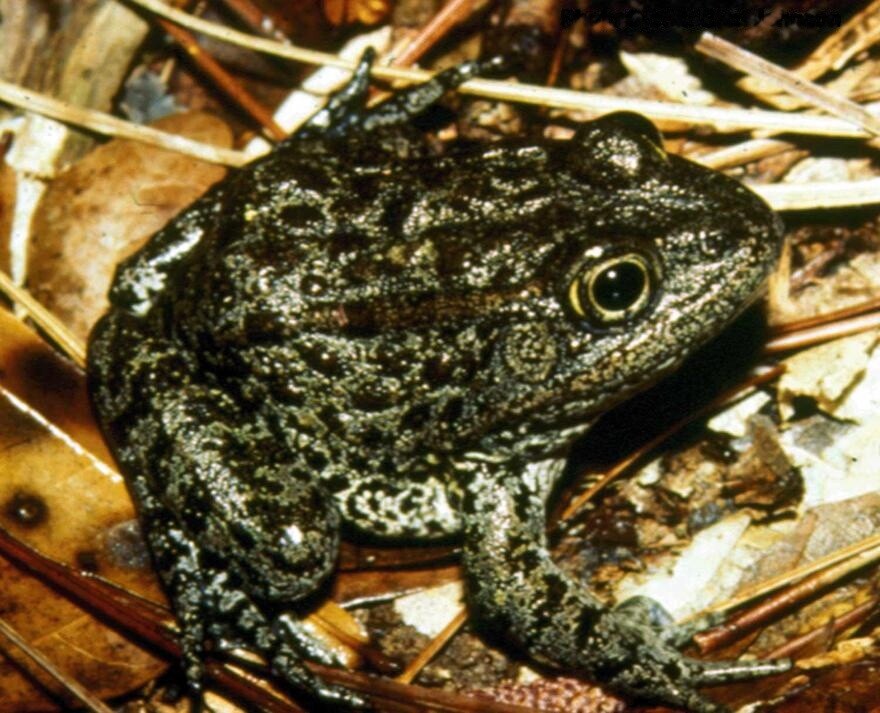The White House has made it clear that one of the Trump administration’s priorities is deregulation. So far that has translated into executive orders, including one that requires agencies to get rid of two existing regulations for every new regulation proposed. Now, Missouri has joined a list of states aiming for a rollback. And that means a potential shake up for endangered species in the state.
The Missouri River is home to one of Missouri’s most famous endangered species: the pallid sturgeon. The Fish and Wildlife Service listed the sturgeon as endangered in 1990, after decades of man-made changes to the river decimated the population. The Service, along with the U.S. Army Corps of Engineers, has undertaken a series of projects along the river aimed at restoring the sturgeon’s habitat. Now, the designation of habitat for the pallid sturgeon and a host of other endangered species is the center of controversy.
Missouri Attorney General Josh Hawley filed a lawsuit earlier this month against the Fish and Wildlife and National Marine Fisheries services. "We’re bringing suit against an Obama-era regulation that gives the federal government the power to designate whole swathes of land as critical habitat," Hawley said.

The rule he’s referring to is the Critical Habitat Rule of the Endangered Species Act, or ESA, which federal agencies use to designate land as critical to a species’ survival. Once land is designated, the ESA requires that federal agencies ensure their actions won’t destroy or adversely affect the habitat.
Until the Obama administration changed the regulation last year, the designation required an endangered species be present or the Fish and Wildlife Service had to show more land was required to rehab the species. The Obama administration changed that, arguing it’s more efficient to designate land as critical habitat as part of a greater conservation strategy, even if the endangered species doesn’t already live there. And that’s what Hawley, and the other attorneys general in the suit argue is overreach. Missouri joins 19 other states in trying to overturn the Critical Habitat Rule.
According to Hawley, "It basically allows federal bureaucracies to say, 'You know, in the future an endangered species might live on the land and therefore we’re going to impose all sorts of controls on it now.'"
To be clear, the critical habitat designation can’t be used to appropriate private land, or create new refuges. Federal government agencies DO have to consult with the Fish and Wildlife and National Marine Fisheries services before doing anything, and before giving permission for anything that might affect the habitat.
The Trump administration’s push for deregulation suggests it might be more receptive to rolling back the rule. But to do that, it would still have to go through a multi-step process that could take years. Hawley said the lawsuit might lead to a faster solution.
"That’s why we’ve filed suit, in order to expedite this process, to hopefully stop the rule from going into effect now," Hawley explained. "We also want to give the new administration an opportunity to withdraw the rule as part of the lawsuit, something they would not be able to do."
Noah Greenwald, the Endangered Species Director of the Center for Biological Diversity, said that's likely the real motivation for the suit. "I guess that’s what it is, it’s a baseless lawsuit and it’s just filed with the expectation that the Trump administration will roll over and do what they want, which is unfortunate,: Greenwald said. The center is a non-profit that advocates for endangered species and their habitat.

Greenwald said other court challenges to the rule have already failed, citing the case of the critically endangered dusky gopher frog. He explained, "It’s down to one, basically one breeding pond. Fish and Wildlife service designated some critical habitat in Louisiana that has breeding ponds on it but no frogs, and they’ve challenged that all the way up through the fifth circuit now and lost."
The plaintiff in that case, a law firm called the Pacific Legal Foundation, is taking its case to the supreme court, something Attorney General Hawley says he is willing to do as well.
"We are prepared, the state of Missouri is prepared to litigate this all the way to the U.S. supreme court if necessary, because the principle is the executive branch has to follow the law," Hawley said.
Greenwald, and the Fish and Wildlife Service for that matter, have argued it is precisely the law that gives the government the ability to designate unoccupied land as critical habitat. Section 3, part 5 of the Endangered Species Act says critical habitat can include, “specific areas outside the geographical area occupied by the species at the time it is listed.”
But whether the new administration withdraws the rule as part of the suit or not, the legal battle over endangered species doesn’t look like ending any time soon. Noah Greenwald said, "I think the thing that we’re going to be facing is just bad implementation from the U.S. Fish and Wildlife Service under the Trump administration, and that’s something we’re certainly going to fight in court."
For his part, Hawley is challenging other land-use regulations as well, hoping to fight what he sees as the federal government infringing on Missouri’s rights. "The signs that we’re seeing out of Washington is that the new administration wants to rollback some of this egregious overreach," Hawley said.
For now, Hawley and the other plaintiffs in the suit have to wait for a response from the Trump administration. The Senate has yet to confirm President Trump’s nominee for Secretary of Interior, who would oversee the Fish and Wildlife and National Marine Fisheries services.




